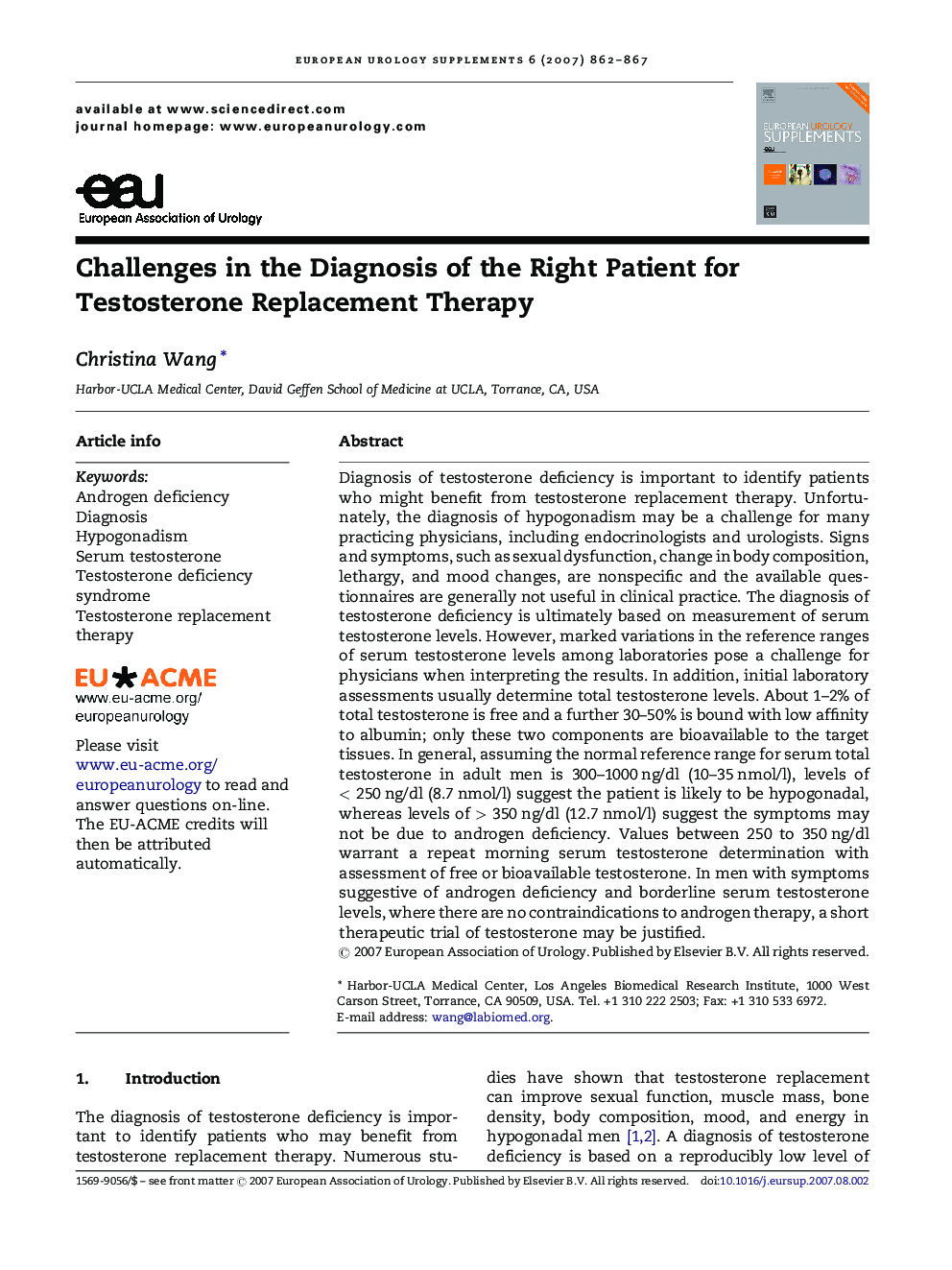| کد مقاله | کد نشریه | سال انتشار | مقاله انگلیسی | نسخه تمام متن |
|---|---|---|---|---|
| 3930340 | 1253252 | 2007 | 6 صفحه PDF | دانلود رایگان |
عنوان انگلیسی مقاله ISI
Challenges in the Diagnosis of the Right Patient for Testosterone Replacement Therapy
دانلود مقاله + سفارش ترجمه
دانلود مقاله ISI انگلیسی
رایگان برای ایرانیان
کلمات کلیدی
موضوعات مرتبط
علوم پزشکی و سلامت
پزشکی و دندانپزشکی
زنان، زایمان و بهداشت زنان
پیش نمایش صفحه اول مقاله

چکیده انگلیسی
Diagnosis of testosterone deficiency is important to identify patients who might benefit from testosterone replacement therapy. Unfortunately, the diagnosis of hypogonadism may be a challenge for many practicing physicians, including endocrinologists and urologists. Signs and symptoms, such as sexual dysfunction, change in body composition, lethargy, and mood changes, are nonspecific and the available questionnaires are generally not useful in clinical practice. The diagnosis of testosterone deficiency is ultimately based on measurement of serum testosterone levels. However, marked variations in the reference ranges of serum testosterone levels among laboratories pose a challenge for physicians when interpreting the results. In addition, initial laboratory assessments usually determine total testosterone levels. About 1-2% of total testosterone is free and a further 30-50% is bound with low affinity to albumin; only these two components are bioavailable to the target tissues. In general, assuming the normal reference range for serum total testosterone in adult men is 300-1000Â ng/dl (10-35Â nmol/l), levels of < 250Â ng/dl (8.7Â nmol/l) suggest the patient is likely to be hypogonadal, whereas levels of > 350Â ng/dl (12.7Â nmol/l) suggest the symptoms may not be due to androgen deficiency. Values between 250 to 350Â ng/dl warrant a repeat morning serum testosterone determination with assessment of free or bioavailable testosterone. In men with symptoms suggestive of androgen deficiency and borderline serum testosterone levels, where there are no contraindications to androgen therapy, a short therapeutic trial of testosterone may be justified.
ناشر
Database: Elsevier - ScienceDirect (ساینس دایرکت)
Journal: European Urology Supplements - Volume 6, Issue 17, November 2007, Pages 862-867
Journal: European Urology Supplements - Volume 6, Issue 17, November 2007, Pages 862-867
نویسندگان
Christina Wang,